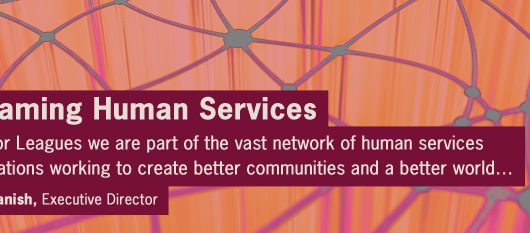The most common complication of pregnancy and childbirth are maternal mental health conditions, which affect 1 in 5 women and childbearing individuals during and in the first year after pregnancy. Maternal mental health conditions—which include depression, anxiety, obsessive-compulsive disorder, post-traumatic stress disorder, bipolar disorder, and substance use disorder—affect more than just those who bear children. If left untreated, they can have long-term negative impacts on parents, children, families, and society. But they are treatable, and building awareness around this issue is the first step toward addressing it.
That’s why The Association of Junior Leagues International (AJLI) recently prioritized maternal mental health an issue area within our Impact Areas, “Improving Health Outcomes and Disparities.” Even before this, however, Junior Leagues have been working to support maternal mental health, particularly through our State Public Affairs Committees (SPAC) over the last decade. SPACs are individual, apolitical Junior Leagues or coalitions of Junior Leagues within a state that form to educate and take action on public policy issues relevant to the Junior League Mission. They are involved in some of today’s most pressing issues. Many SPACs chose their areas of interest based on the issues that their individual Leagues are tackling, the needs of the state, or the opportunities to advocate for or against legislation.
Advocating for maternal mental health in California
Beginning in 2009, the California SPAC (CalSPAC) used legislative advocacy to influence the practice of health agencies, change the stigma around maternal mental health conditions, and encourage their legislature to recognize the severity of maternal mental health issues. Over three years, they introduced one bill and two resolutions, which urged health care stakeholders to invest resources to educate women about perinatal depression risk factors and triggers. The leaders of CalSPAC at that time created the California Maternal Mental Health Collaborative, now 2020 Mom, which became a separate nonprofit. CalSPAC supported the 2020 Mom’s sponsored ACR 148(Lowenthal)(Chaptered 2014), which created the State Commission on the Status of Maternal Mental Health Care.
CalSPAC also utilized community advocacy to influence public opinion and create a grassroots public education campaign. While the Junior League of Los Angeles developed the “Speak Up When You’re Down” social media campaign, the Junior League of San Francisco expanded upon it by holding community panels and distributing materials to community partners, baby and maternity stores and partnering with a variety of organizations. The SPAC format allowed multiple Leagues to collaborate to translate their work to a larger context. In 2015, CalSPAC won the inaugural AJLI Public Policy and Advocacy Award for their work in the maternal mental health space. This work was instrumental in bringing maternal mental health to the forefront once again in CA as well as at the Association, and we are proud to have advanced this work forward.
Continuing maternal mental health advocacy in New Jersey
The New Jersey SPAC (NJ SPAC) has also been a driving force in pushing forward legislation and public awareness around maternal mental health in their state. They have prioritized including the intersection of race along with mental health in tackling this issue, as there are wide racial disparities surrounding maternal mental health care. In 2021, NJ SPAC helped to pass bill A1079/S703, which requires health care professionals and support staff that provide perinatal and maternity care to take evidence-based implicit bias training. This includes hospitals providing in-patient maternity services, birthing centers, medical offices providing perinatal treatment and care, and requires licensing boards to also offer training programs. This work is essential in prioritizing and embedding diversity, equity, inclusion, and belonging into all of the impact that we have. The NJ SPAC prioritized adding equity into the mix through this legislation in order to ensure that all mothers have the support that they need.
Expanding maternal mental health advocacy work
There are many ways to advocate for maternal mental health without being involved in a SPAC or by engaging in legislative advocacy. Public awareness is a substantial portion of advocacy—normalizing conversations around topics like maternal mental health that have long been considered taboo is a first powerful step toward progress. Consider having these conversations for the first time with your friends and relatives. Consider collaborating with your fellow League members, and possibly other Leagues who are similarly interested in this issue.
Maternal mental health conditions will continue to remain a priority for Junior Leagues until it is universally recognized and de-stigmatized.

